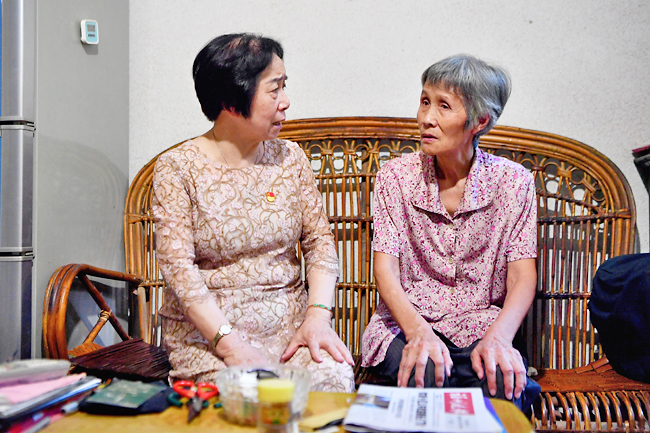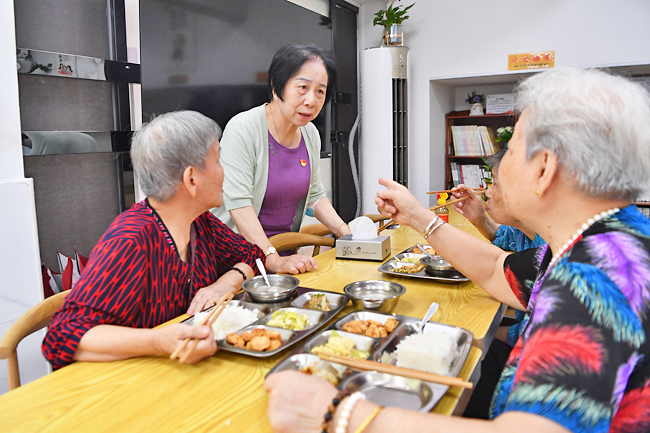CHONGQING (XINHUA) – For elderly empty nesters and white-collar workers living alone, seeing doctors without others’ companions can be more than just an inconvenient and lonely experience, which has bred a new occupation, ‘patient chaperon’ in China.
On a Monday morning, Lin Dan, a 35-year-old patient chaperon in southwest China’s Chongqing Municipality, was waiting for her 26-year-old client in front of a local hospital.
“The examination procedure, digestive endoscopy, requires patients to have their relatives or friends aside. Yet, my client’s family doesn’t live in Chongqing, and available friends are hard to find on weekdays. So, she paid for my accompanying service in case she needs any help while visiting the doctor,” Lin explained.
Lin is not merely on standby, but queueing for the patient, fetching medical reports, reassuring the patient and the like during the whole process.
As a former nurse, Lin is also able to provide professional advice and health tips on how to take better care of one’s stomach in daily life for her client.


Around 11am, after a three-hour medical examination and treatment, Lin walked the young client out of the hospital and earned about CNY200 (about USD29) for her efforts during the half-day’s companionship.
There are about 80 patient chaperons like Lin in her company, mostly former professional medical workers. Their single-time service costs range from CNY88 to CNY588 (USD12-USD86). Such a niche market may just take off in Chongqing, with only three to four big companies entering the novel service industry sector.
But in Beijing, China’s major workplace for its young migrant workers, such an occupation has already developed considerable market demands.
Zhang Yusheng, 28, was a taxi driver in Beijing before he became a patient chaperon. Local hospitals were a common destination for his passengers.
“So, merely by how often I used to drive the passengers to hospitals, I can tell the underlying potentials of the novel career,” Zhang said.
The promising new job has made Zhang triple his monthly salary.
After working for a year and a half, most of his regular clients tend to be elderly citizens.
“In order to get familiar with hospitals, I often search for information online and pay visits to reputable hospitals from time to time. Besides certain knowledge, the job also demands great patience, compassion, and care for people,” Zhang added.
Lin is also sanguine about the future development of the new occupation.
“In an ageing society, our job is much more needed than ever. Meanwhile, youngsters would also pursue a more efficient way of visiting hospitals in such a fast-paced society,” Lin explained, adding that the newly-emerging occupation can be a huge market.
Yu Wen, a doctor in Chongqing, agrees with them. “Honestly, I myself would like to order such services for my parents as well. The field has huge development potential, but still needs more supervision by relevant departments to present the new occupation with a more organised and reliable image to the public,” said Yu.
Lin and Zhang are also a little bit worried that online publicity of their new career might entice those who are only profit-minded to join the industry.
“However, just like apps that enable people to order taxis and take-outs online, an application could be designed for accompanying patients in the future. With a detailed introduction and client comments, it could ensure the patient chaperon candidates to be trustworthy and improve the work efficiency,” Zhang said.






